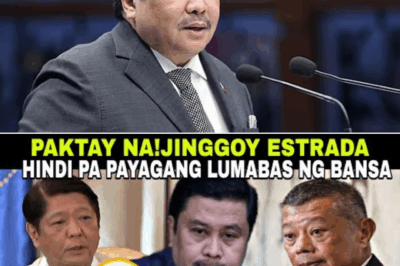A melody wraps itself around social media—catchy, emotional, familiar. For many Filipinos, it instantly strikes a chord. It’s a tune that echoes in childhood memories, karaoke nights, or jeepney rides. But as the beat drops and the lyrics roll, something feels… off. The singer isn’t Filipino. The words are in another language. And suddenly, what was once ours feels like it’s being claimed by someone else.
This is not a new story. Filipino songs—often beautifully written and melodically rich—have
long caught the attention of international audiences. Some are translated with respect and proper credits, while others are… not. Some songs go viral on TikTok or YouTube in completely new versions, sung by foreign artists, with no trace of the original Filipino creators.
At first glance, this may seem like a compliment. Isn’t it great that Filipino music is reaching global ears? In some cases, yes. Recognition is powerful. But the pain comes when the origin is erased—when a melody so close to the heart is stripped of its roots and rebranded as something new and foreign. It’s like hearing your story being told in someone else’s voice, without mention of where it began.
Take for example the case of a 90s OPM (Original Pilipino Music) hit that recently resurfaced online—only this time, it was part of a dance challenge on an international platform, sung in a new language, with no reference to its Pinoy roots. Filipino netizens immediately recognized the melody, flooding the comments with surprise, pride, and a bit of frustration. Many asked: Where is the credit? Why is the original artist invisible?
There is a thin line between inspiration and appropriation. Music is a universal language, yes, but its origins and creators deserve acknowledgment. When a song is lifted without credit, it’s not just the artist who is robbed—it’s the culture, the history, the people behind it.
This issue reflects a broader pattern. The Philippines, rich in creativity and artistry, often finds its work repackaged for foreign consumption. Whether it’s in the form of melodies, dance moves, or even viral content, Filipino creators frequently go uncredited. And while some netizens are quick to notice and speak out, many instances slip quietly into obscurity, with the world applauding a “new” discovery that isn’t really new at all.
The emotional sting of this kind of cultural erasure is real. For Filipino musicians, it’s not just about lost royalties or recognition—it’s about identity. Each song tells a story that belongs to a people, a place, a moment in history. When those stories are retold without context, something vital is lost.
However, this isn’t just a tale of loss. It’s also a call to action.

Now more than ever, there is a growing sense of cultural vigilance online. Filipino netizens are becoming cultural watchdogs, quick to point out when credit isn’t given where it’s due. Artists are standing up, calling for proper recognition, and celebrating the global reach of OPM without allowing its roots to be forgotten.
To truly honor Filipino music on the world stage, two things must coexist: appreciation and attribution. Let the world sing our songs—but let them also know where those songs came from. Let’s welcome the global love, but not at the expense of our identity.
Because in every note, in every lyric, in every beat—there is history. There is home. And no matter who sings it now, the melody was ours first. 💔
News
Dr. Vicki Belo at Hayden Kho Nagbigay ng Bonggang Suporta kay Eman Bacosa: Mamahaling Gamit, Regalo, at Isang Di-Malilimutang Araw
Sa gitna ng mga batikos, tanong, at diskusyong umiikot kay Eman Bacosa Pacquiao nitong mga nakaraang linggo, bigla namang nagbago…
Asawa ng Kambal ni Jinkee Nagsalita: Totoo Ba Talagang Pinababayaan ni Manny Pacquiao ang Anak na si Eman?
Matapos pumutok ang mga komento at batikos online tungkol umano sa “kawalan ng suporta” ni Manny Pacquiao sa anak niyang…
Umuugong na Pagbaliktad: PBBM Pinipigilang Bumagsak Habang Mambabatas at Retired Generals Humaharap at Kumakastigo sa Katiwalian
Sa gitna ng mainit na protesta at lumalakas na panawagang sugpuin ang katiwalian sa pamahalaan, biglang sumirit ang tensyon sa…
Hindi Pinayagang Mag-Travel? Holiday Trip ni Sen. Jinggoy Estrada, Binabara Habang Papalapit ang Posibleng Warrant of Arrest
Sa gitna ng papalapit na Kapaskuhan, isang bagong kontrobersya na naman ang sumabog matapos lumutang ang ulat na nagpaplano umanong…
Viral na Singsing ni Jillian Ward: Simbolo ng Pagkakaibigan o Simula ng Seryosong Relasyon kay Eman Pacquiao?
Sa nakaraang linggo, muling pinag-usapan ng publiko ang tambalang Jillian Ward at Eman Pacquiao matapos mapansin ng mga netizens ang…
Eman Pacquiao, Inamin ang Pagkaka-admire kay Jillian Ward: Pagkakaibigan o Simula ng Pag-ibig? Ang Kontrobersiya sa Showbiz at Social Media
Sa mundo ng showbiz, bihira ang mga kuwento na nagdudulot ng matinding diskusyon sa publiko—at isa na dito ang rebelasyon…
End of content
No more pages to load












